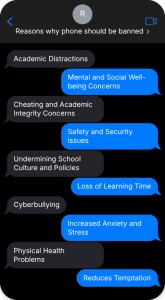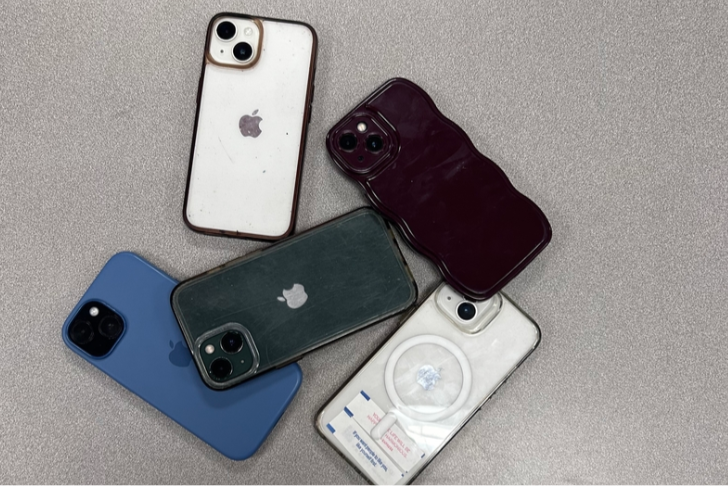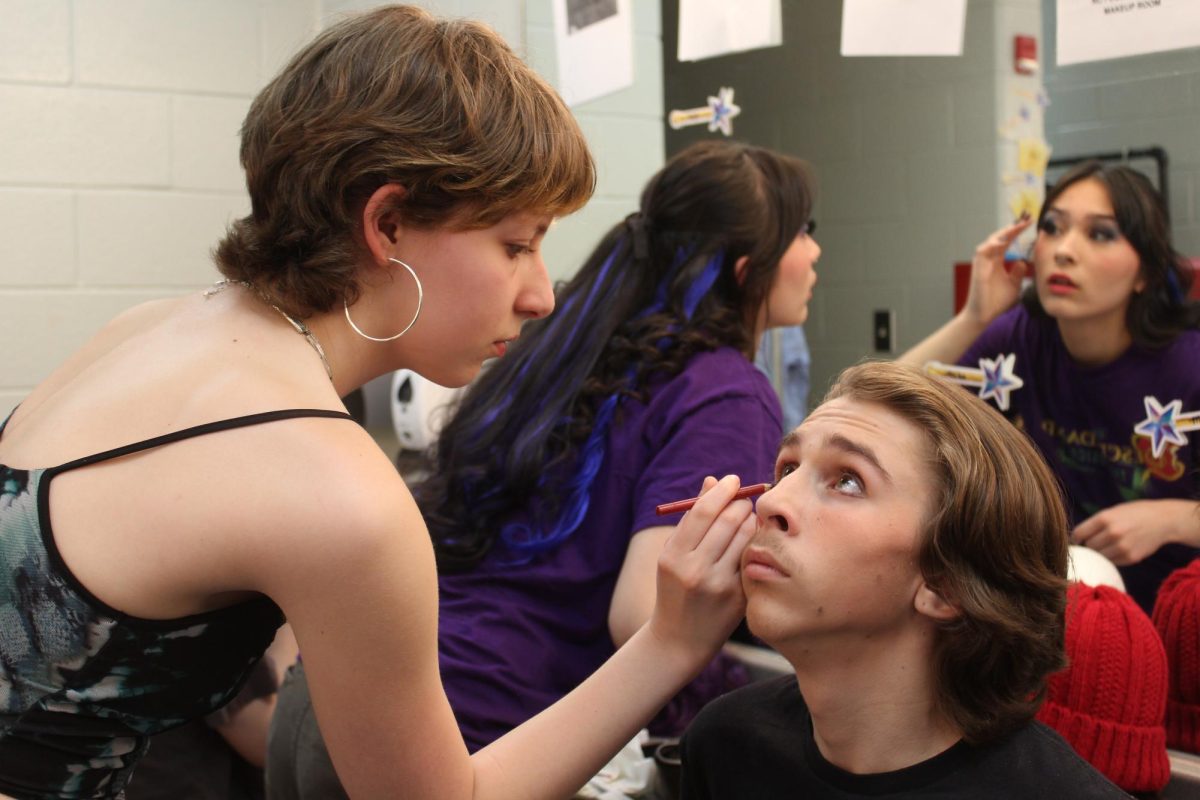District administrators are waiting for information from the state about whether or not a new state law banning cellphones in schools will go into effect for the 2025-2026 school year.
Last year, the state required schools to implement policies regarding the use of cellphones with House Bill 250. Senate Bill 158 will take it a step further.
Ohio Governor Mike DeWine voiced his support for SB 158, which would prohibit student use of cell phones in Ohio public schools.
“The constant distraction of cell phones makes it nearly impossible for students to focus and learn,” DeWine said at a press conference in April. “Not only do they negatively impact student performance, but they can also be harmful to kids’ mental and emotional health.”
The bill is likely to pass, according to high school principal Scott Hinton.
“It’s actually in two places, it’s included in the Senate bill, but it’s also been included in the governor’s budget,” Hinton said. “So, he’s kinda doubled up that effort, so either way I think it is going to come out.”
Students, parents and teachers have many questions about what the ban would look like in schools. Would phones be completely banned from high schools, or could students still have them turned off in their lockers? Hinton said the administration won’t have answers to these questions until the bill goes into effect or the budget is passed in June.
“The word is waiting,” Hinton said. “There is no preparation because we don’t know what it says.”
The bill does allow exceptions for students with a documented purpose as part of an Individualized Education Program (IEP) or for monitoring a health concern.
Banning cellphones in schools can offer several benefits, a fact that some students acknowledge.
“There are obvious benefits to banning cellphones, like more focus in school and a positive effect on adolescents’ attention spans, and I feel as

Information sources:
Lightspeed Systems,
Mental Health Awareness Education,
Schneide Solutions,
House of Lords Library
though those benefits would be good and seen within the next school year,” sophomore Harrison McKinney said.
McKinney says that a cell phone ban would not change much about his daily life at school.
“Personally, not much would change unless cell phones are to be banned always, including the cafeteria,” McKinney said. “This is because that is really the only time I ever use it.
Other students have major concerns about not being able to have access to phones during school hours.
“I think it is a bad idea considering all the bad outcomes that can come with it,” junior Sydney Cotrill said. “Think about all the emergencies that kids have at schools and maybe there is a school danger and the kid can’t reach their parents because they have no phone.”
When it comes to emergencies, some students say they feel safer having access to a phone.
“Also, what if you have a family emergency and nobody can contact you directly?” junior Ellie Hu-Van-Reeth said. “Sure, the family could contact the school, but would you really want the school knowing your personal business?”
Not having access to a cell phone during the school day could make arrangements more complicated for students.
“It would make logistics more complicated, since there are many occasions where I will have to contact family and friends for updates on transportation, schedules, and most importantly sports (i.e.. practice cancellations and match schedules),” McKinney said.
Hinton said that he has concerns that a cell phone ban could cause a strain in the relationship between students and staff.
“My worry right now is that we will have a lot more standoff argumentative type interactions with students,” Hinton said.
McKinney has similar concerns.
“In Granville, a ban of cell phones would likely increase animosity between students and teachers despite the ban not being the teachers’ fault, similar to how that happened with the ‘traffic light’ system this year,” McKinney said.
In general, Hinton says there are many gray areas with the policy that will need to be worked out.
For example, he notes that students who use their phones for medical reasons like diabetes and may be questioned by their peers about why they are allowed to use a cell phone.














































